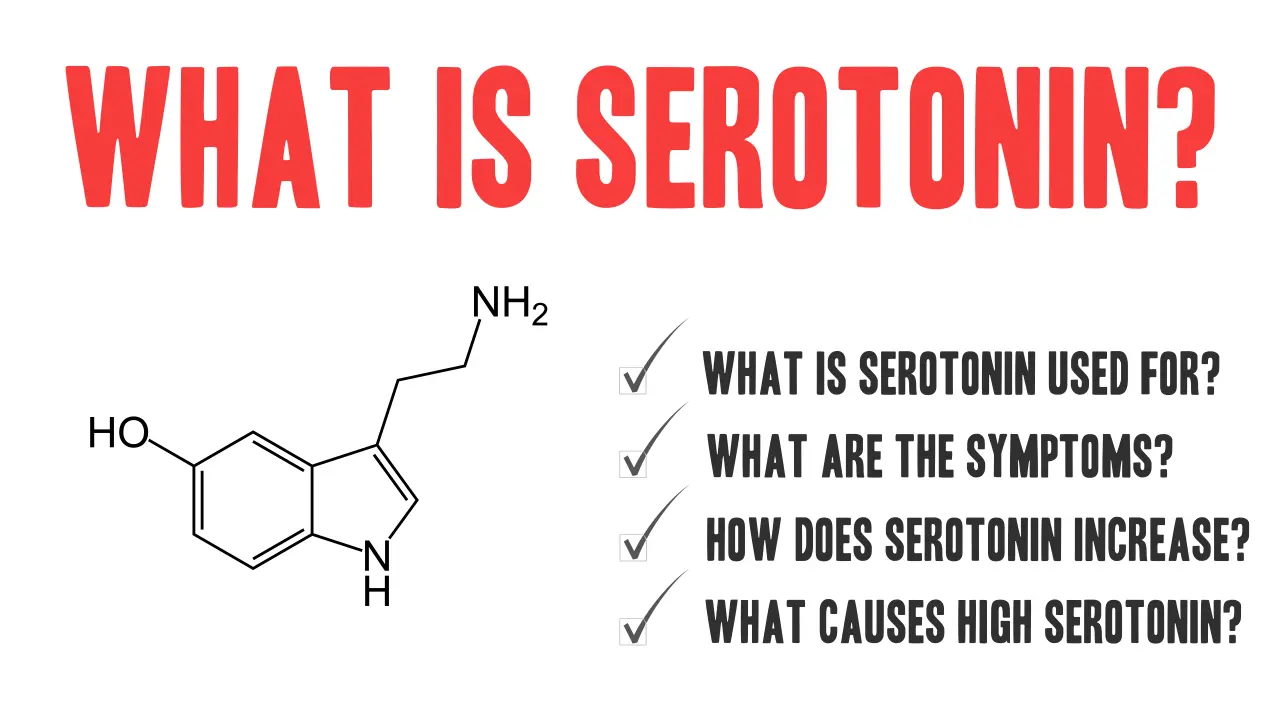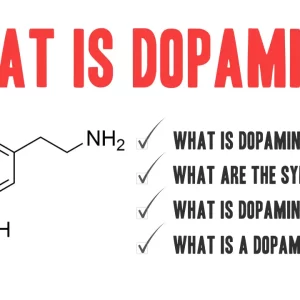Contents
- What is Serotonin?
- Where is the Serotonin Hormone Produced?
- What is Serotonin Used For?
- What Causes Serotonin Deficiency? What Are the Symptoms?
- What Causes High Serotonin? What Are the Symptoms?
- How Does Serotonin Increase? What Are the Foods That Increase Serotonin?
- Frequently Asked Questions About Serotonin
- References
What is Serotonin?
Serotonin (5-hydroxytryptamine or 5-HT) is a neurotransmitter and hormone that plays a crucial role in regulating mood, sleep, appetite, digestion, memory, and more. Often referred to as the “feel-good” or mood-stabilizing hormone, serotonin helps promote a sense of well-being and emotional stability.
Although widely known for its effects in the brain, most serotonin in the human body is actually found outside the central nervous system.
Where is the Serotonin Hormone Produced?
- Approximately 90–95% of the body’s serotonin is produced in the gastrointestinal (GI) tract, specifically by enterochromaffin cells in the gut lining.
- The remaining 5–10% is synthesized in the central nervous system, primarily in the raphe nuclei of the brainstem.
- Serotonin cannot cross the blood-brain barrier, so brain and gut serotonin are produced independently.
What is Serotonin Used For?
Serotonin influences a wide variety of functions across different body systems:
In the Brain:
- Regulates mood, anxiety, and happiness
- Modulates sleep-wake cycles
- Affects appetite and impulse control
- Plays a role in cognition, learning, and memory
In the Body:
- Controls bowel motility and digestive function
- Involved in blood clotting via platelet activation
- Contributes to sexual function
- Impacts thermoregulation and pain perception
Serotonin is also the precursor to melatonin, the hormone that regulates sleep.
What Causes Serotonin Deficiency? What Are the Symptoms?
Causes:
- Low dietary tryptophan intake (tryptophan is the amino acid needed to make serotonin)
- Chronic stress
- Vitamin B6 or B3 deficiency
- Lack of sunlight exposure (reduces serotonin synthesis)
- Poor gut health or dysbiosis
- Depression or anxiety disorders
- Certain medications (e.g., hormonal birth control, beta-blockers)
Symptoms of Serotonin Deficiency:
- Low mood or depression
- Anxiety or irritability
- Insomnia or disrupted sleep
- Carb cravings or emotional eating
- Fatigue and low motivation
- Poor memory and difficulty concentrating
- Digestive issues (e.g., constipation or IBS)
What Causes High Serotonin? What Are the Symptoms?
Excessive serotonin levels can be dangerous and lead to serotonin syndrome, a potentially life-threatening condition.
Causes of High Serotonin:
- Overdose or interaction of medications like SSRIs, MAOIs, tramadol, MDMA, or linezolid
- Combining multiple serotonergic drugs or supplements (e.g., 5-HTP, St. John’s Wort)
Symptoms of Serotonin Syndrome:
- Agitation or confusion
- Muscle twitching or tremors
- Rapid heart rate
- High blood pressure
- Dilated pupils
- Shivering or sweating
- Fever
- In severe cases: seizures, irregular heartbeat, or unconsciousness
Seek immediate medical attention if serotonin syndrome is suspected.
How Does Serotonin Increase? What Are the Foods That Increase Serotonin?
The body makes serotonin from the amino acid tryptophan, with help from vitamin B6, magnesium, iron, and vitamin D.
Natural Ways to Boost Serotonin:
- Sunlight Exposure – UV light stimulates serotonin production in the brain.
- Exercise – Aerobic activity boosts serotonin and endorphin levels.
- Tryptophan-Rich Foods – Combine with carbs to aid absorption.
- Meditation and Gratitude Practices – Shown to elevate mood-related neurotransmitters.
- Social Interaction and Laughter – Natural mood enhancers.
- Massage Therapy – Increases serotonin while reducing cortisol.
Tryptophan-Rich Foods Include:
- Turkey and chicken
- Eggs
- Dairy products (milk, yogurt, cheese)
- Tofu and soy products
- Salmon and other fatty fish
- Nuts and seeds (especially pumpkin and sunflower seeds)
- Oats and bananas
- Dark chocolate
Note: Tryptophan competes with other amino acids to cross the blood-brain barrier. Consuming it with complex carbohydrates helps prioritize serotonin synthesis.
Frequently Asked Questions About Serotonin
Q: Is serotonin the same as dopamine?
A: No. Serotonin stabilizes mood, while dopamine is associated with reward and motivation. Both are critical for mental health and often work together.
Q: Does serotonin affect sleep?
A: Yes. Serotonin is a precursor to melatonin, the hormone that regulates sleep-wake cycles.
Q: Can I test serotonin levels?
A: While serotonin blood tests exist, they are not commonly used to assess mental health. Brain serotonin levels can’t be directly measured through standard tests.
Q: Are there supplements to boost serotonin?
A: Supplements like 5-HTP, tryptophan, and St. John’s Wort may increase serotonin but should be used cautiously and under medical supervision.
Q: Can gut health affect serotonin?
A: Yes. Most serotonin is made in the gut, and imbalanced gut flora may impair serotonin production and mood regulation.
References
- Young SN. How to increase serotonin in the human brain without drugs. Journal of Psychiatry & Neuroscience. 2007;32(6):394–399. https://www.ncbi.nlm.nih.gov/pmc/articles/PMC2077351/
- Berger M, Gray JA, Roth BL. The expanded biology of serotonin. Annual Review of Medicine. 2009;60:355–366. https://doi.org/10.1146/annurev.med.60.042307.110802
- Carhart-Harris RL, Nutt DJ. Serotonin and brain function: a tale of two receptors. Journal of Psychopharmacology. 2017;31(9):1091–1120. https://doi.org/10.1177/0269881117725915
- Institute for Functional Medicine. Serotonin and Gut Health. https://www.ifm.org



